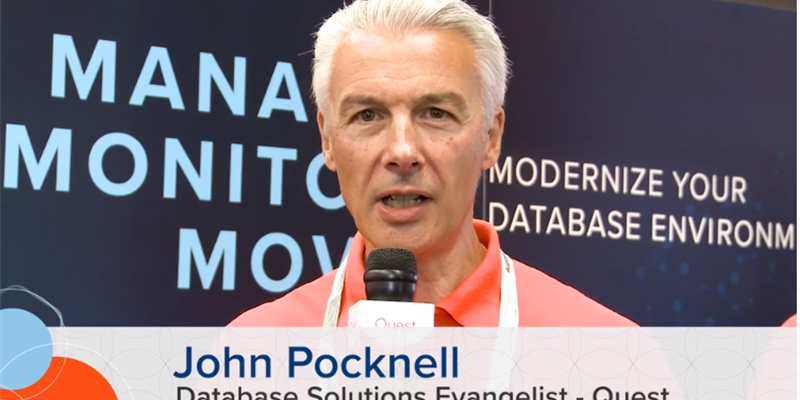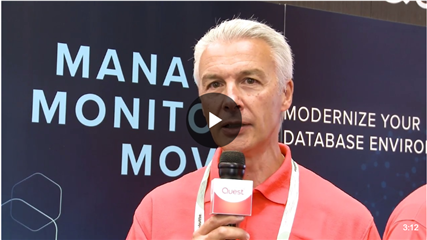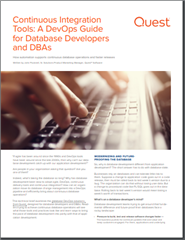By now, you’ve likely heard the term “DevOps,” and may be investigating whether it’s a good approach for your organization. But what is database DevOps? As we talk with customers, we’ve learned that many organizations are not very far along the road to DevOps and may need some more understanding of the concept, its practices and how to get there.
First, what exactly is DevOps? Semantically, it’s a combination of the words “development” and “operations.” Conceptually, it refers to a culture of collaboration across technology silos to deliver functionality to the market more quickly. In practice, the achievement of DevOps relies on processes—such as continuous integration and continuous deployment (CI/CD), tools that enable automation, and a commitment from teams to work together to further business goals.
Click on the picture above to watch a three-minute video about how automation, change monitoring, replication and testing helps prepare businesses to tackle database DevOps.
What’s the current state of DevOps?
Traditional waterfall application development methodologies have largely been discontinued, but the gains have been slower in database operations. While developers have adopted agile approaches to help deliver incremental changes faster, database administrators have been more reluctant to change, instead preferring methods that don’t jeopardize database stability.
This is understandable, to the extent that DBAs are charged with preserving and protecting the organization’s data, but it’s at odds with the competitive forces that are driving businesses to speed application features to market. As a consequence, many organizations are seeing database operations as a bottleneck—impeding development rather than facilitating it.
Getting to DevOps
Since DevOps is a new approach that requires people to change ingrained ways of working, this change needs to be driven by executive leadership and be presented in terms that emphasize the positive impact to the business. One team can’t just proclaim “now we’re doing DevOps!” It’s a cross-team approach that focuses people in different functional areas—operations, development, QA—on working together. It may also be potentially threatening to people who are highly invested in the current way of doing things—as with any organizational change, there could be resistance.
Ultimately, the business needs to operate in an agile way to respond to market changes, deliver business value much faster than before, and innovate more quickly than their competitors. Just like agile development was, database DevOps and CI/CD are the latest ways to achieve new efficiencies by integrating database operations into the application/database change management lifecycle.
At Quest, we’ve thought a lot about how the transition to DevOps and the implementation of CI/CD processes affects our customers and how we can help. Recently, John Pocknell, Database Solutions Evangelist, recorded a short video describing how Quest solutions can support DevOps initiatives, as well as a five-part master class series of videos that delves more deeply into this topic. Over the next few weeks, we’ll highlight key points from these videos and provide additional resources that will help you with the transition to DevOps.
Continuous Integration Tools: A DevOps Guide for Database Developers and DBAs
With the expert advice in this tech brief, you'll learn how to use end-to-end solutions to bring databases into your DevOps CI/CD pipeline. You’ll see how continuous integration tools can help you reduce risk and accelerate release cycles.
Want to learn more?
E-book: DevOps for Oracle Databases
Case study: Major Financial Firm Advances DevOps with Trusted Database Tools
Blog: Bridging the gap between data management and DevOps
Blog: Modernizing Your Database Infrastructure
More blogs: Read more blogs about CI/CD and DevOps
Share on social media
If you think your colleagues would benefit this blog, share it now on social media with the buttons located at the bottom of this blog post. Thanks!
Questions
If you have any questions about this topic, open a discussion in our Toad DevOps Toolkit forum.




